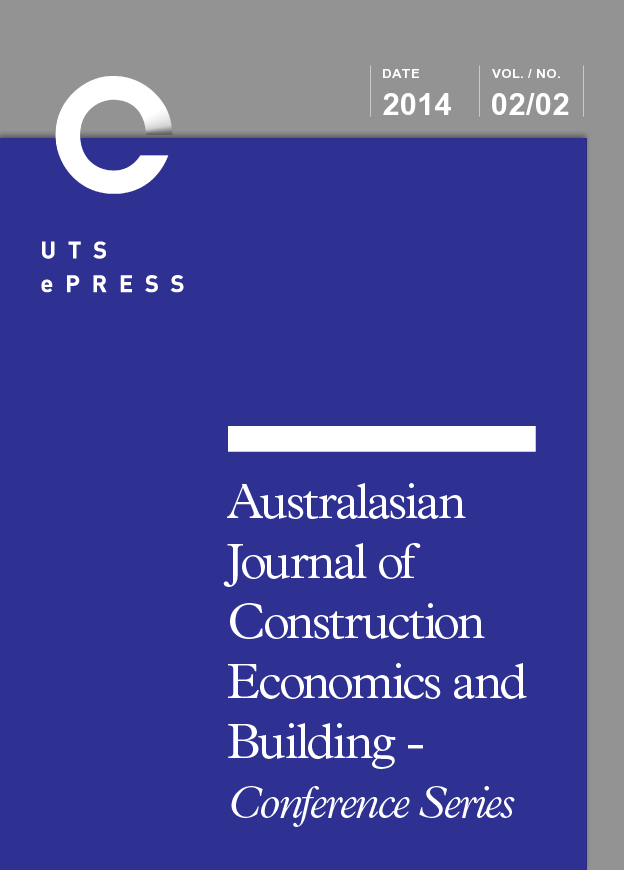Procurement Selection Model: Development of a Conceptual Model Based on Transaction Costs
Main Article Content
Abstract
Procurement is a major improvement area and a crucial element contributing to project success, and the selection of an optimal procurement system is an important and difficult step in project execution. The criteria for choosing suitable procurement methods are based on client’s objectives and priorities, and influenced by project constraints. The procurement path determination chart has largely dominated research in procurement selection process in construction. Eight factors need to be considered by the client when developing procurement selection criteria. At the procurement strategy the focus should be on factors such as cost, quality, and time, while at the procurement route the consideration should focus on complexity, certainty, risk, responsibility, and degree of control by the client. However, including certain criteria and ignoring the magnitude of transaction costs (TCs) associated with uncertainties in the transaction environment simplifies this process. This study addresses this shortcoming by combining evaluation criteria with TCs incurred because of external and internal environmental uncertainties in a theoretical model on procurement selection. This is achieved by developing a conceptual framework model based on TCs. Uncertainties in the transaction environment have a positive or negative impact on the magnitude of TCs such as information, procurement, administration, and enforcement. The model represents an analytical form of a suitable combination of factors influencing procurement systems, which guide procurement decisions. The model will increase understanding of how efficient procurement selection of construction projects can be achieved through appropriate procurement procedures, which could positively impact project performance.
Keywords: Construction, Procurement systems, Transaction costs
Article Details
Section
Authors who publish with this journal agree to the following terms:
a) Authors retain copyright and grant the journal right of first publication with the work simultaneously licensed under a Creative Commons Attribution License that allows others to share and adapt the work with an acknowledgement of the work's authorship and initial publication in this journal.
b) Authors are able to enter into separate, additional contractual arrangements for the non-exclusive distribution of the journal's published version of the work (e.g., post it to an institutional repository or publish it in a book), with an acknowledgement of its initial publication in this journal.
c) Authors are permitted and encouraged to post their work online (e.g., in institutional repositories or on their website) prior to and during the submission process, as it can lead to productive exchanges, as well as earlier and greater citation of published work (See The Effect of Open Access). Where authors include such a work in an institutional repository or on their website (ie. a copy of a work which has been published in a UTS ePRESS journal, or a pre-print or post-print version of that work), we request that they include a statement that acknowledges the UTS ePRESS publication including the name of the journal, the volume number and a web-link to the journal item.
d) Authors should be aware that the Creative Commons Attribution (CC-BY) License permits readers to share (copy and redistribute the work in any medium or format) and adapt (remix, transform, and build upon the work) for any purpose, even commercially, provided they also give appropriate credit to the work, provide a link to the license, and indicate if changes were made. They may do these things in any reasonable manner, but not in any way that suggests you or your publisher endorses their use.
